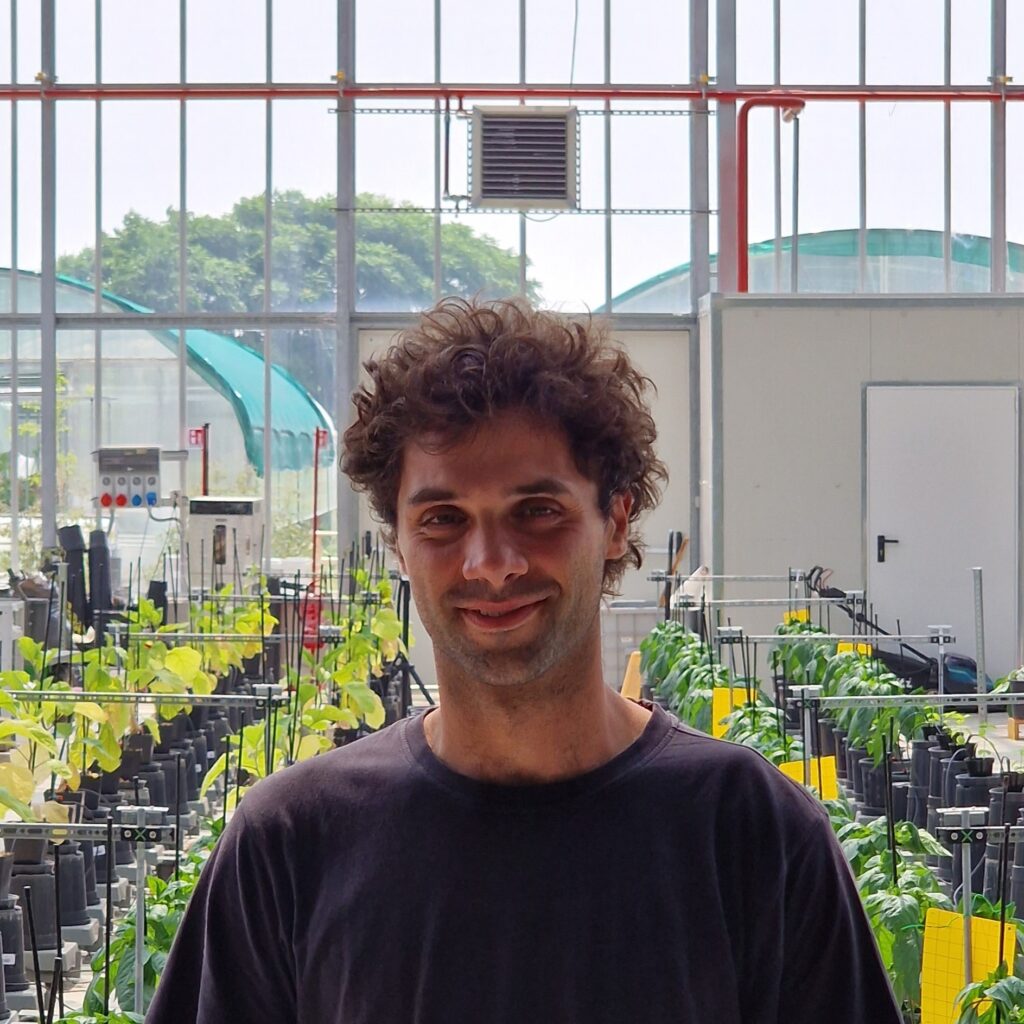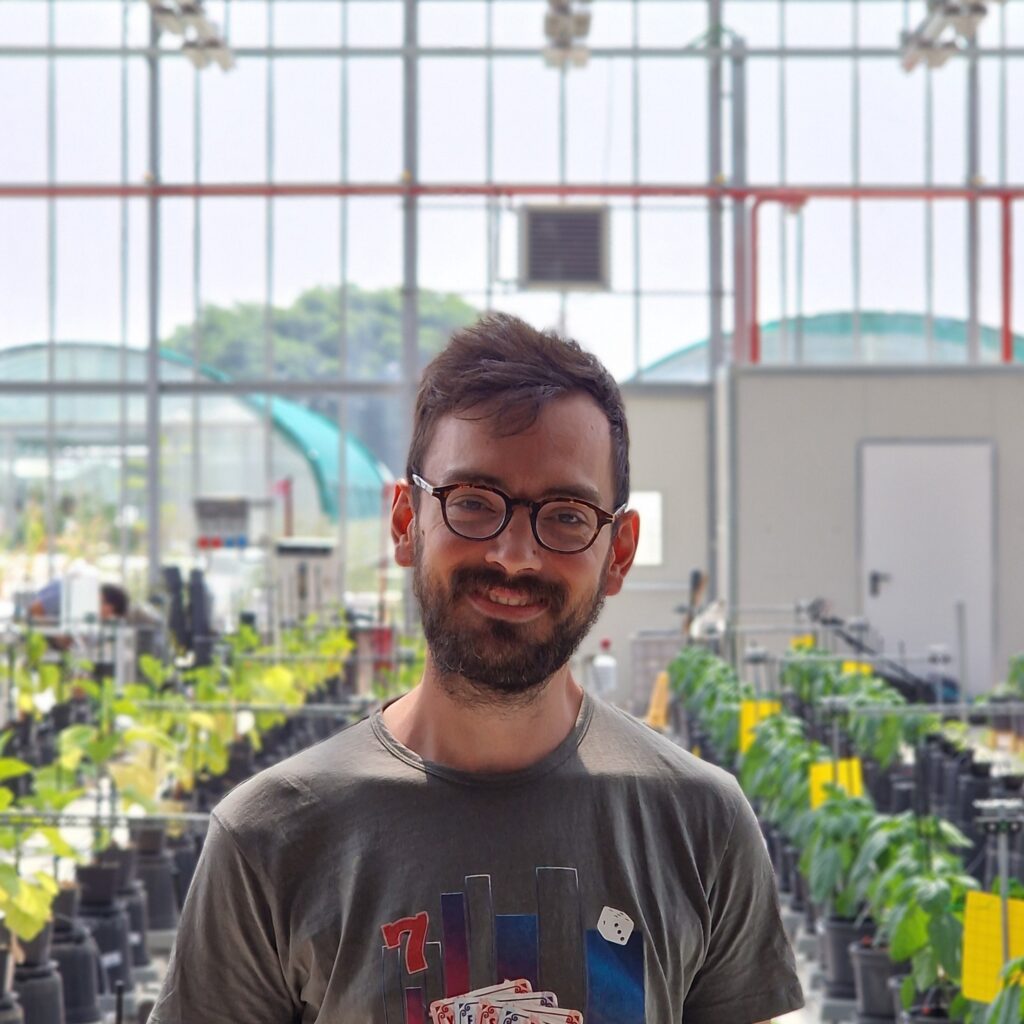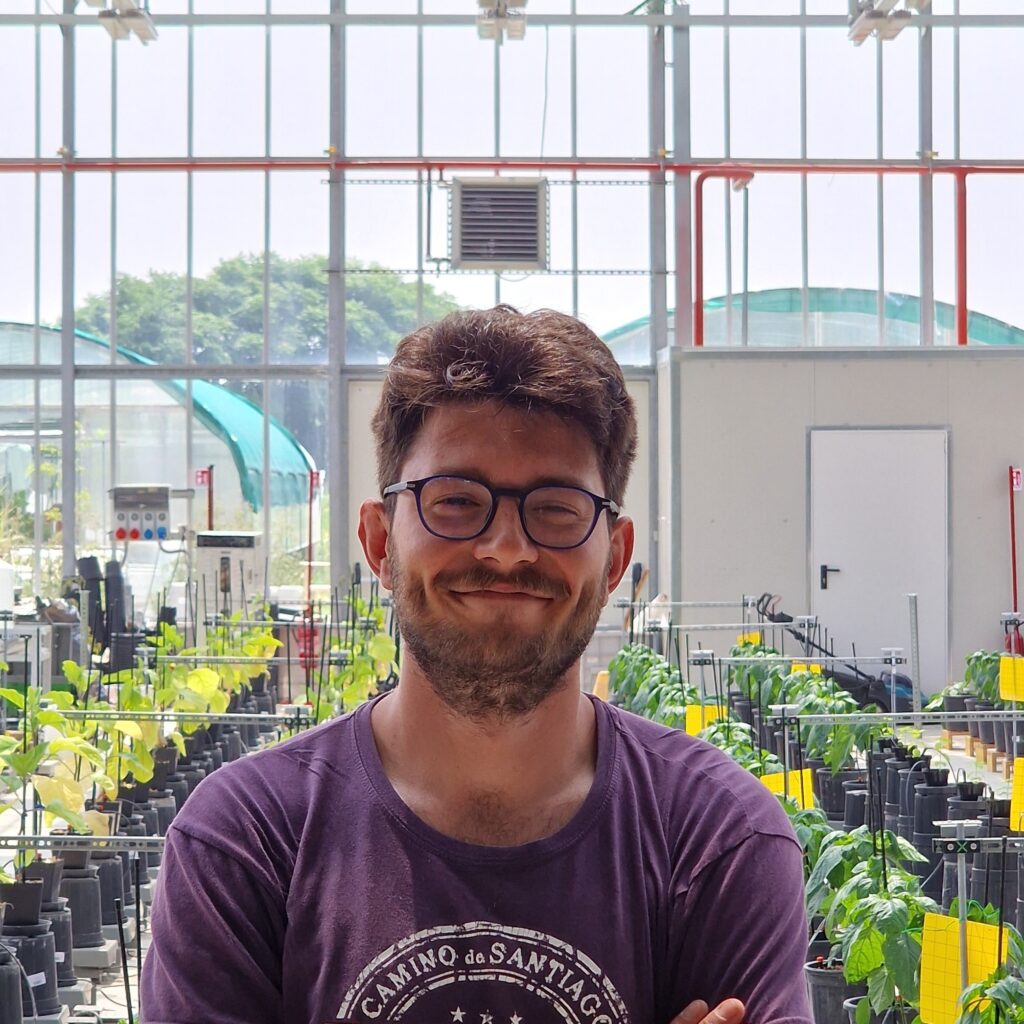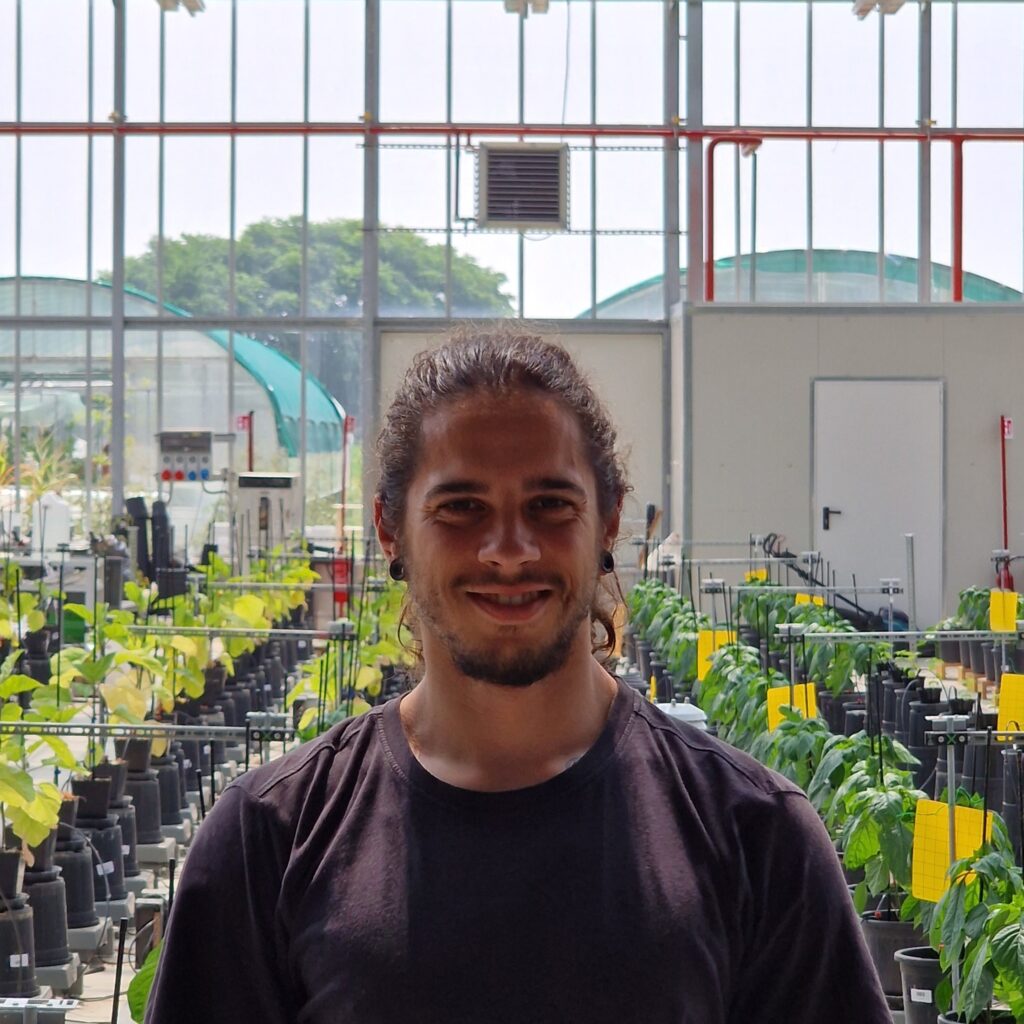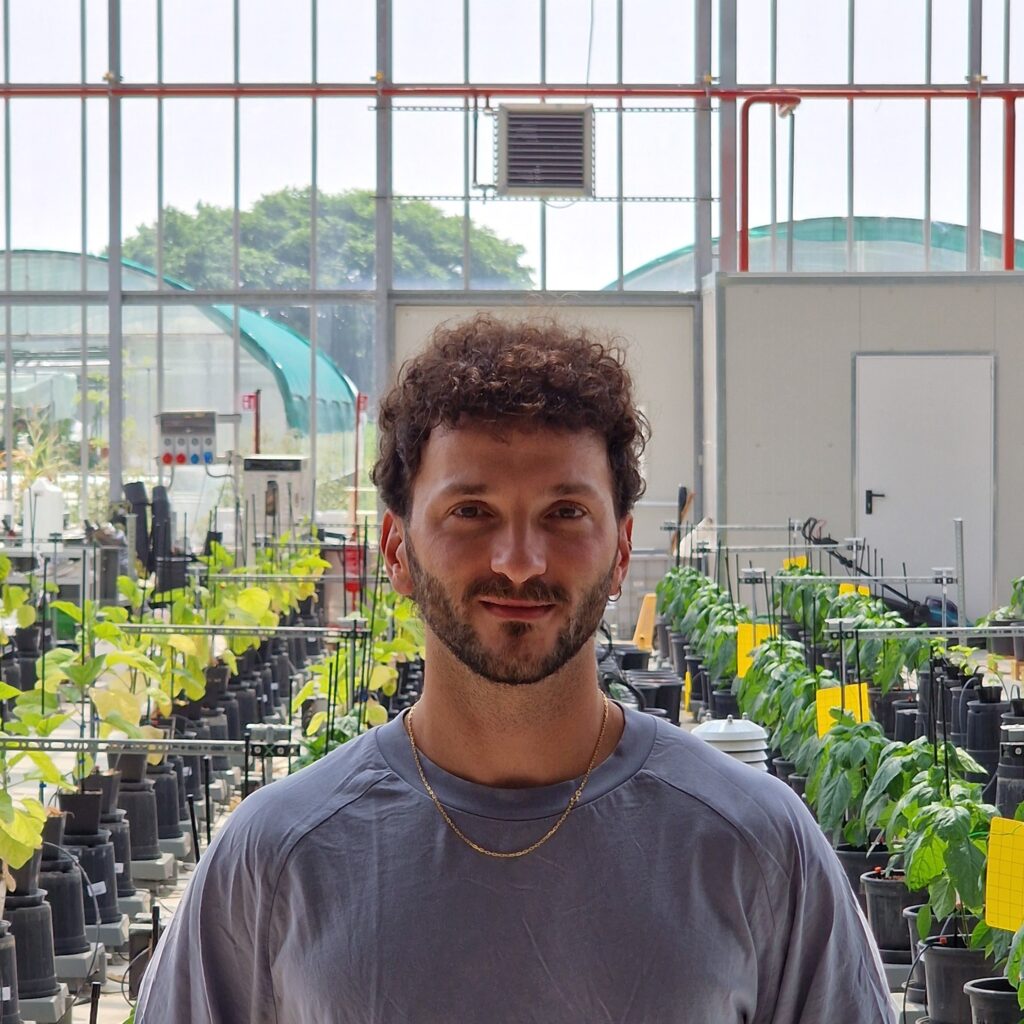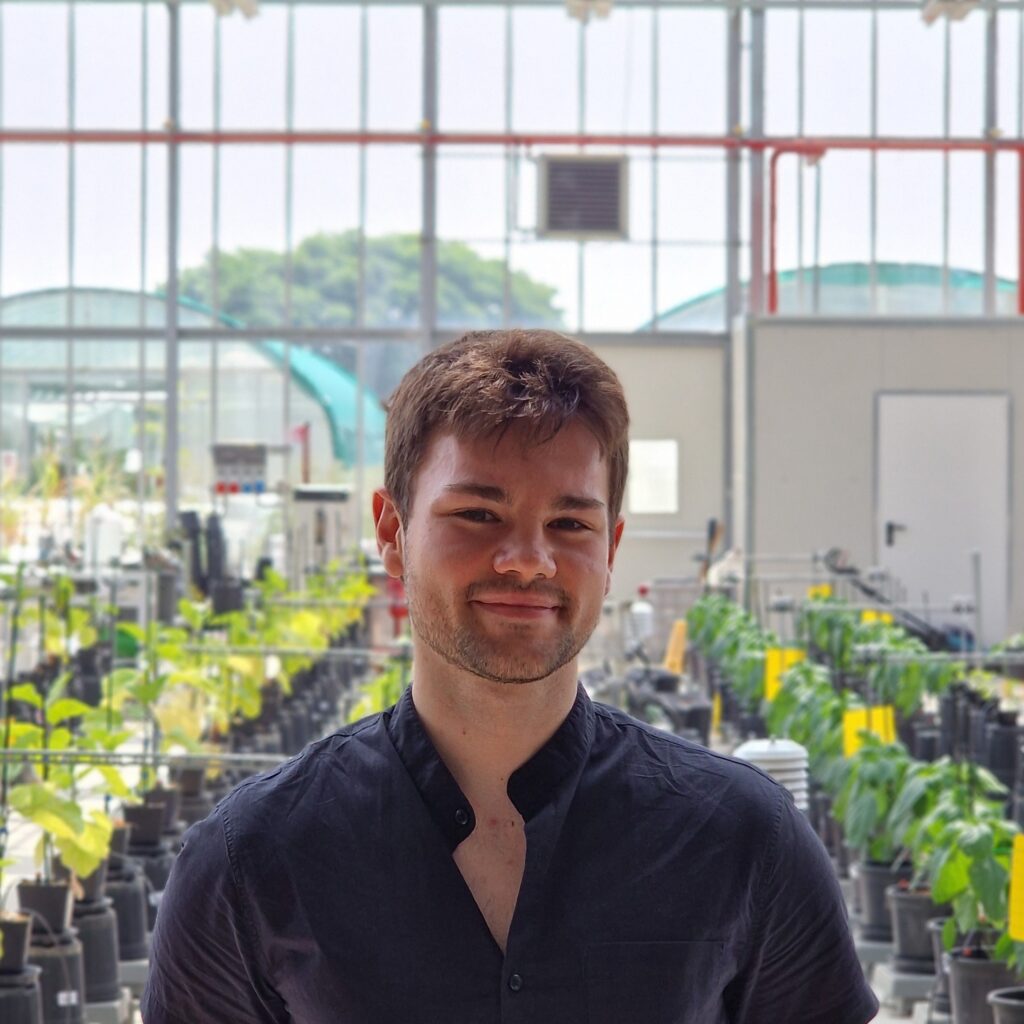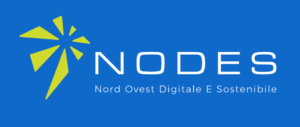About us
Plant Flow Solutions (PFS) is a project born at the University of Turin, with a mission: to measure plant performances at a micro level to solve agriculture issues at a macro level..
The project aims to accelerate screening and phenotyping activities in the field of plant science by employing the most robust methods of plant ecophysiology investigation: gas exchange analysis and fluorometry..
With a wide range of instruments and 2 phenotyping platforms, we offer an analysis service that quantifies plant growth performances.
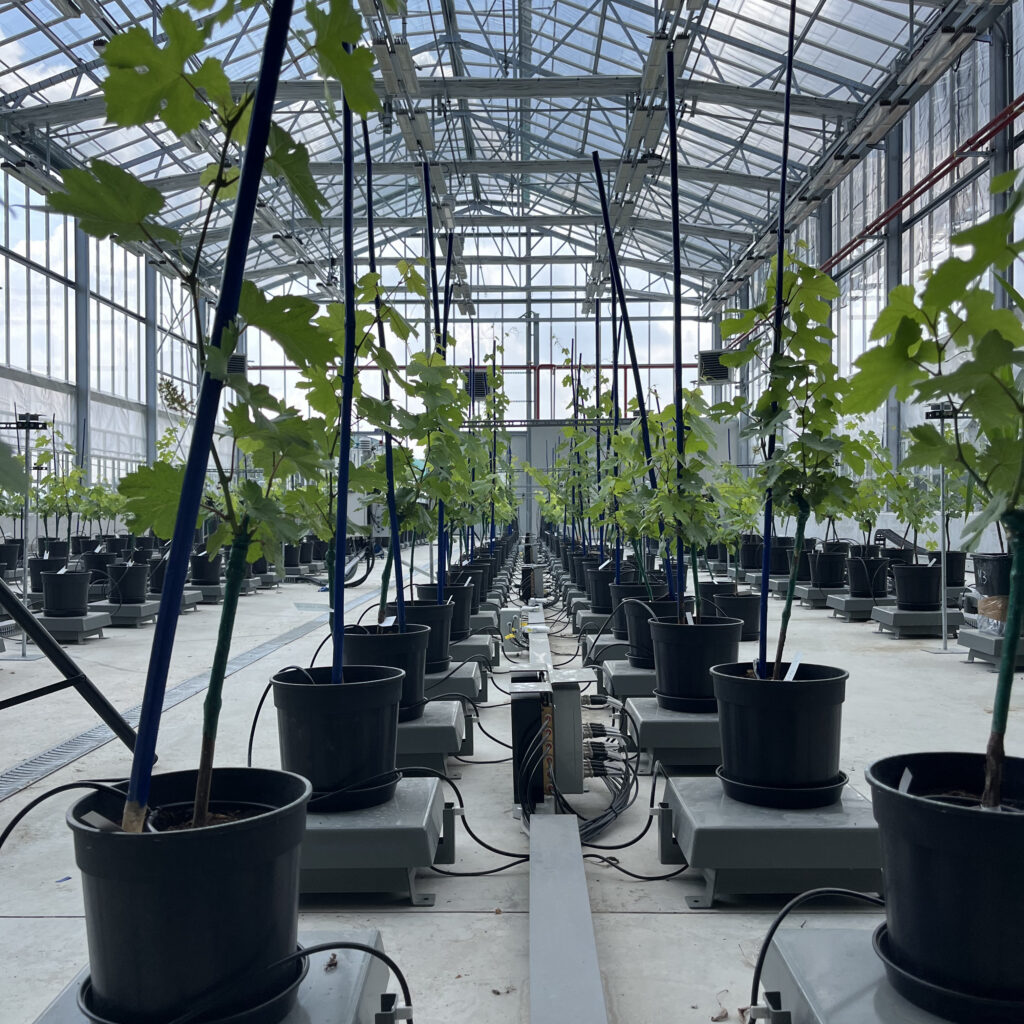
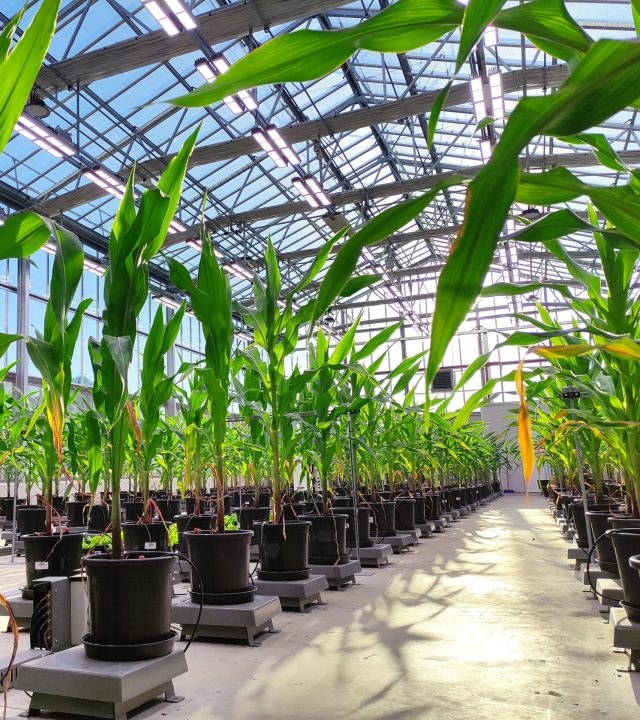
Applications
We help accelerate the development of biostimulant products. Our service works alongside the R&D teams in this industry, conducting screening tests and characterizing the effects of products on plants. We enable the rapid identification of promising biostimulant prototypes and swiftly optimize them. This approach reduces testing time and costs while maximizing the market potential of the developed products.
For our clients, we provide over 30 years of experience in studying plant responses to environmental stress to identify an experimental strategy that clearly addresses the following questions:
- Does the tested product have an effect?
- What is the duration of the effect?
- Under which environmental conditions is the effect advantageous?
- What mechanism of action can be hypothesized for the product?
Technological advancements in recent decades have enabled significant progress in genotyping activities. However, phenotyping remains the bottleneck for the development timeline of new cultivars. Thanks to our proprietary technology, which automates gas exchange analyses and enhances the detail of extracted information, we enable advantageous use of these analyses in phenotyping activities.
By conducting these analyses continuously during highly controlled and reproducible environmental stress protocols, we swiftly characterize plant performance under chosen environmental conditions. This approach allows for understanding and quantifying plant resilience to stress and thus comprehending the effectiveness of the implemented responses.
We offer this service to support the development and characterization of new cultivars arising from breeding or genome editing activities.
Test facilities have been operating alongside major fertilizer and phytopharmaceutical companies for several decades. Their clientele is increasingly shifting towards the development of biostimulant and biocontrol products. To continue offering an excellent service, the professionalism and expertise in agronomy of trial centers must now integrate with expertise in the field of plant physiology.
To facilitate this evolution, we offer our spaces, technology, and highly qualified personnel to test centers, for conducting efficacy tests with physiological analyses to complement the testing activities offered by the test facility itself. This way, the test facilities can provide innovative results to their clients, meeting their evolving needs.
Our Service
Thanks to thirty years of experience in stress physiology and the use of cutting-edge technologies, we conduct tests that allow quantifying plants' response capabilities to environmental stresses. Through the offering of an analysis service, we support all industrial and scientific contexts that develop new technologies and production systems to increase agriculture's resilience.
Our service, which synergistically utilizes the technologies at our disposal, aims to identify the most advantageous experimental strategy to optimize the time and costs of research.
The tests we conduct are based on the following analyses:
Gas exchange analysis on whole plants with an automated platform and PFS technology
Traditional gas exchange analyses (IRGA and porometer)
Fluorimetric analyses (PAM)
Spectrometric analyses (reflectance)
Morphometric analyses (3D imaging phenotyping platform)
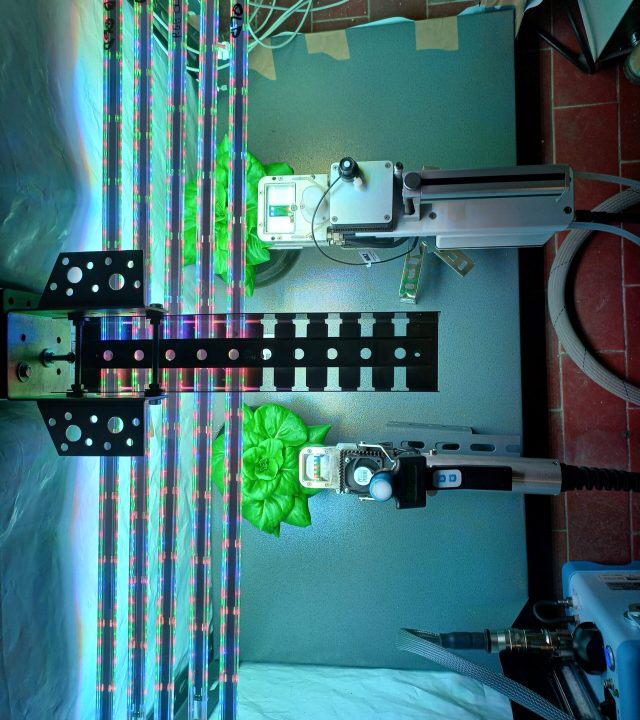
Tailor made solutions
We combine our experience as researchers with the specific expertise of our clients. We offer highly customized experimental setups that highlight the characteristics of the tested product.
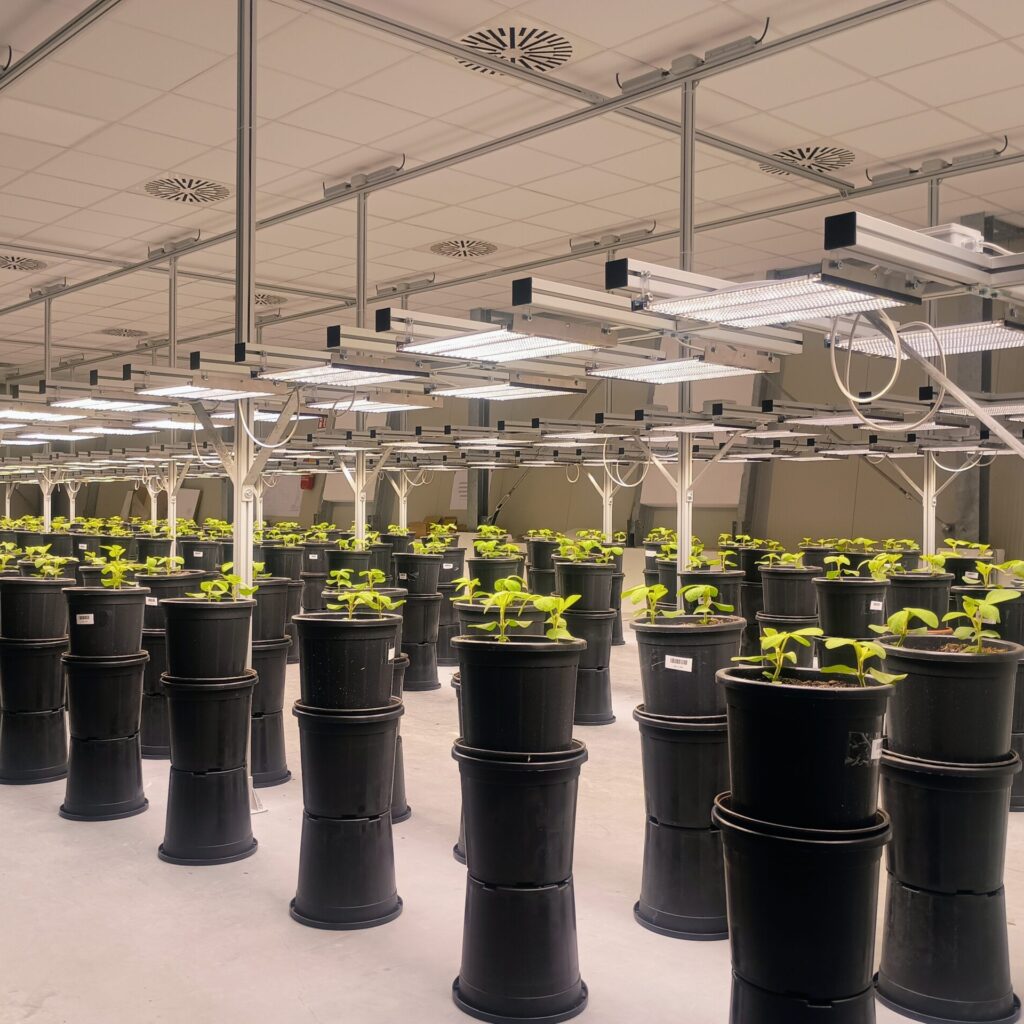
Technology
To conduct our clients' tests, we have the following equipment:
- 4 infrared gas analyzers (IRGA) for plant-atmosphere gas exchange
- 3 porometers
- 3 PAM fluorimeters
- 1 3D imaging platform
- 1 spectrometer with nanometric resolution
- 1 gas exchange analysis platform with proprietary technology
- We perform experiments both in greenhouse and growth chambers enabling us to simultaneously study hundreds of plants under highly reproducible abiotic stress conditions (e.g., water, saline, or light stress).
By optimizing our growth and stress protocols, we standardize our analyses, drastically reducing variability and increasing result reproducibility.
Proprietary Technology
Our goal is to make gas exchange analysis scalable and applicable in all those contexts where it is necessary to test numerous products on a large number of plants.
We have thus developed an automated gas exchange analysis platform that, using specially designed chambers, allows discriminating between CO2 and H2O flows in the respiratory compartment (soil-root compartment) and the aerial compartment of the plant (canopy compartment).
In a continuously and simultaneously climate-controlled environment, we monitor the following information on a large number of plants:
- Traditional photosynthetic parameters -> photosynthetic rate (A), transipration (E), stomatal conductance (Gs), sub-stomatal CO2 concentration (Ci) + soil respiration, canopy nighttime respiration
- combined parameters (absolutely quantified, not estimated!) such as WUE, NUE and Relative Growth Rate.
- We track daily and multi-day kinetics (including day/night incidences) of these parameters.
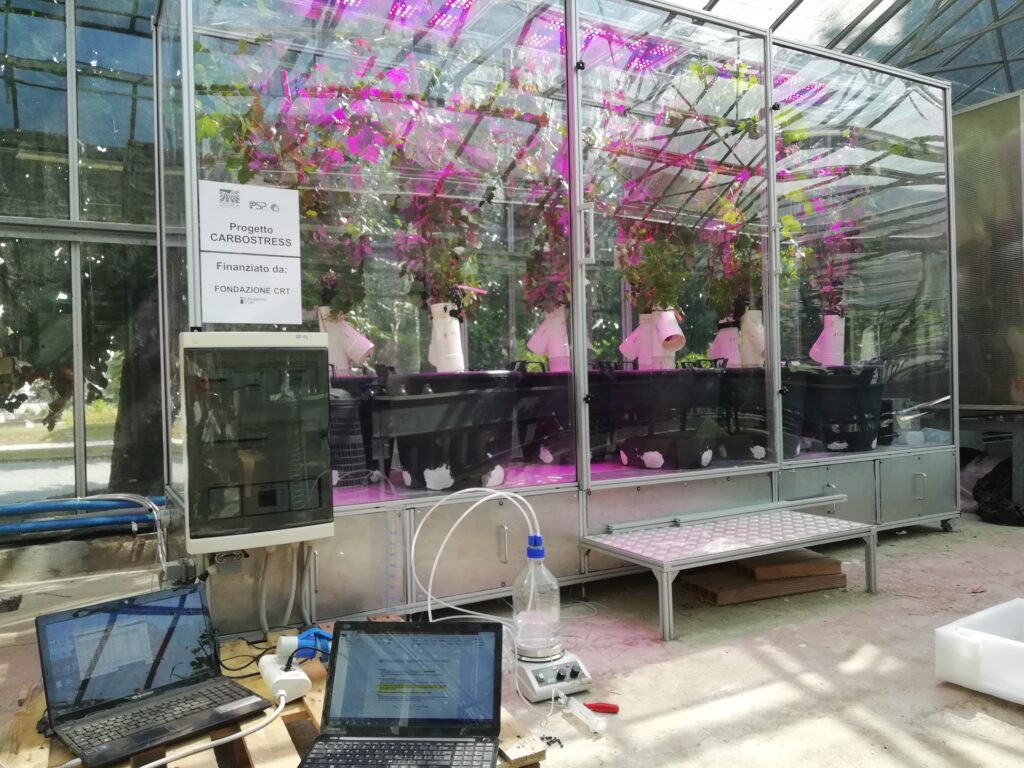
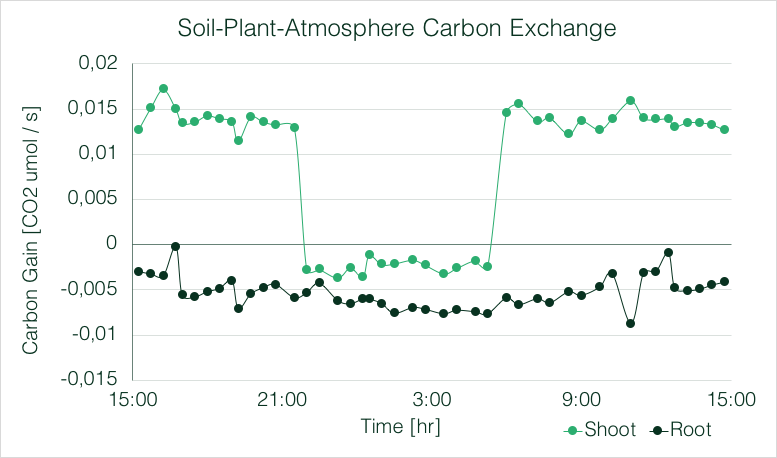
Why analyze photosynthesis?
When unfavorable environmental conditions prevail, a plant's ability to overcome the adverse period and resume growth afterward depends on its capacity to quickly adopt protective responses and acclimate to the stresses it faces. Maintaining an efficient photosynthetic apparatus is strategically important for the plant; its damage incurs a huge metabolic cost and significantly slows down growth. Thus, the regulation of photosynthetic activity stands as a fundamental response that the plant undertakes.
Gas exchange analysis measures the amount of CO2 absorbed and H2O transpired by plants during photosynthesis.
PAM fluorimetry analyzes fluorescence emitted by chlorophyll during photosynthetic activity.
Stomatal closure, reduction in assimilative rates, and photoprotective mechanisms for dissipating light energy are some rapid response mechanisms adopted by plants under stress, all observable through these analyses.
By employing direct observation methods of the photosynthetic apparatus' functioning and utilizing measurement techniques developed and refined over 70 years of scientific research, these analyses immediately recognize the onset of stress phenomena and quantify the plant's response capacity.
An analysis assessing plant resilience to environmental stresses should:
Provide responsive indices capable of identifying stress phenomena from the early stages and defining its intensity.
Allow standardization of measurements so that observed differences can be attributed to the plant's physiological state rather than environmental disturbances during measurement.
Be supported by a solid scientific foundation for clear interpretation of the results.
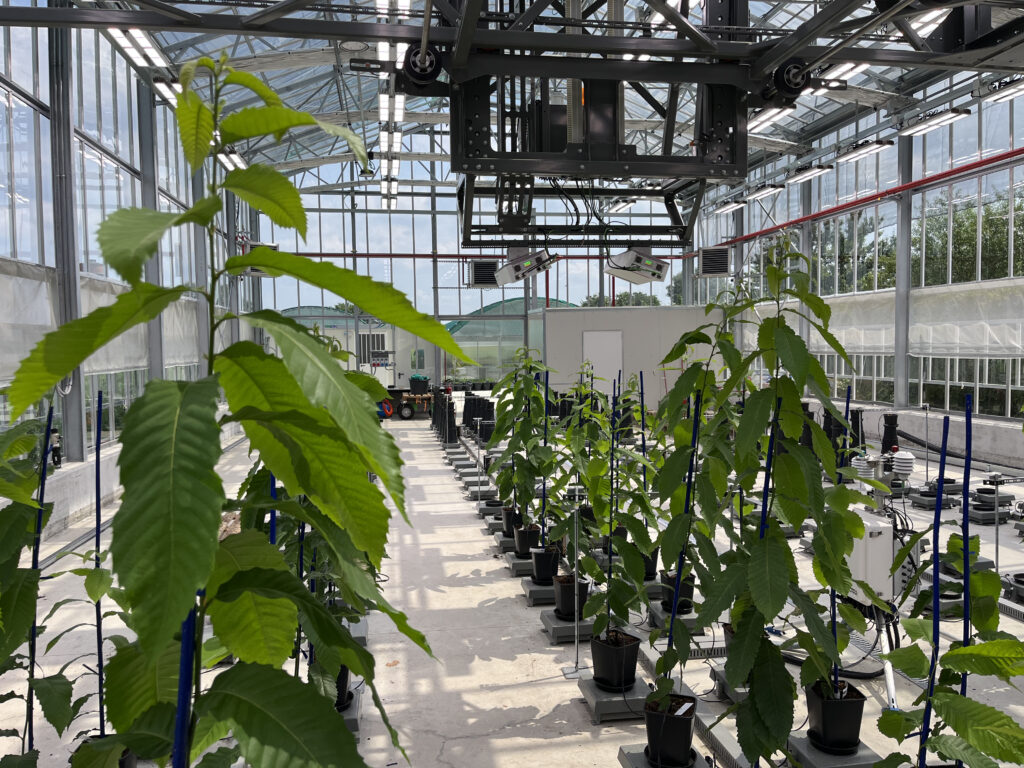
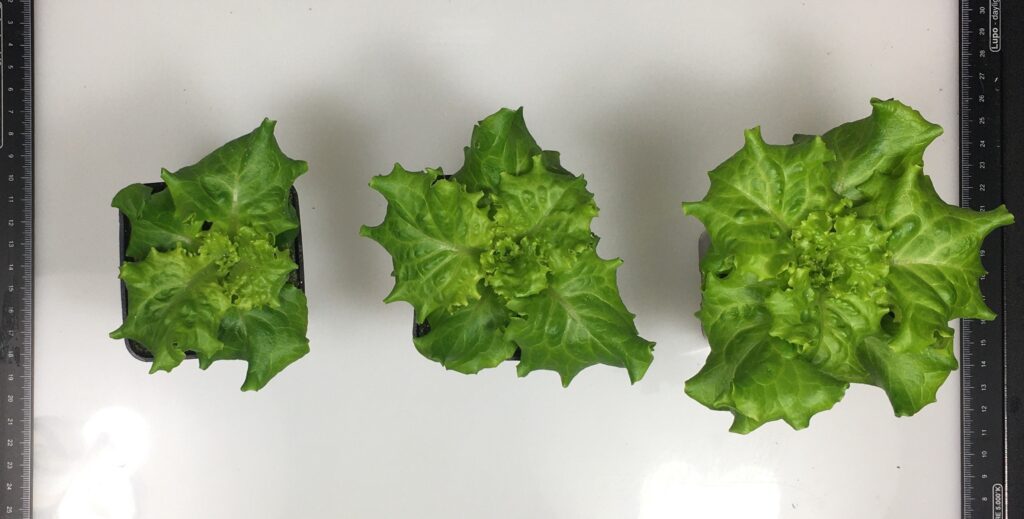
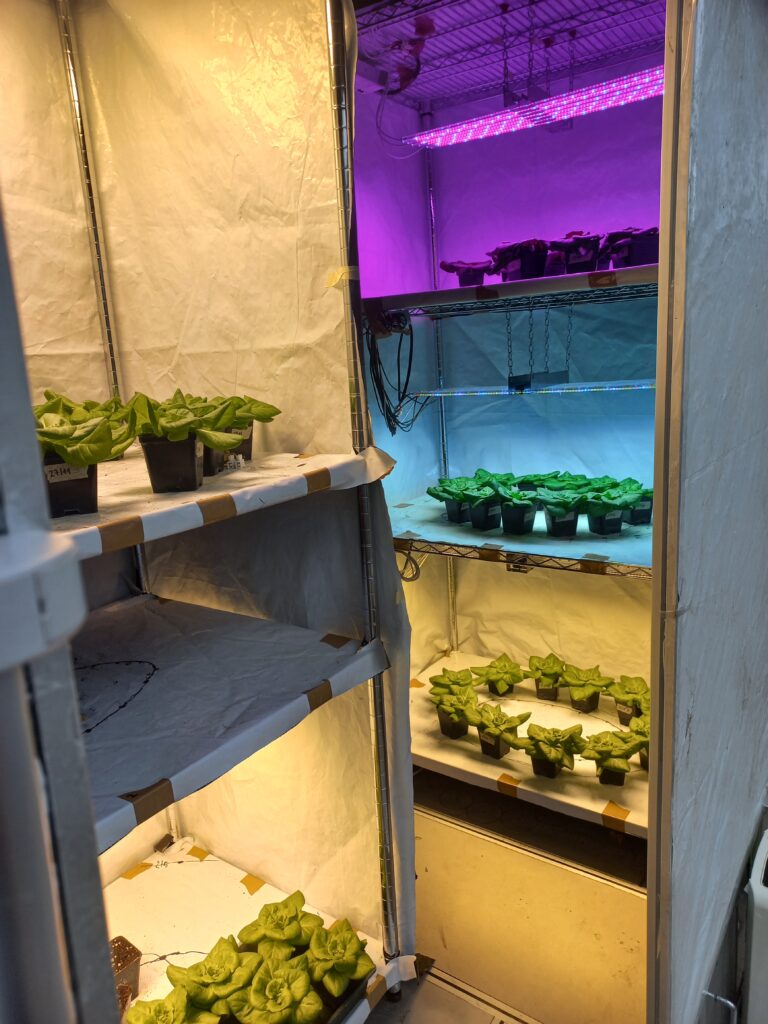
The Team
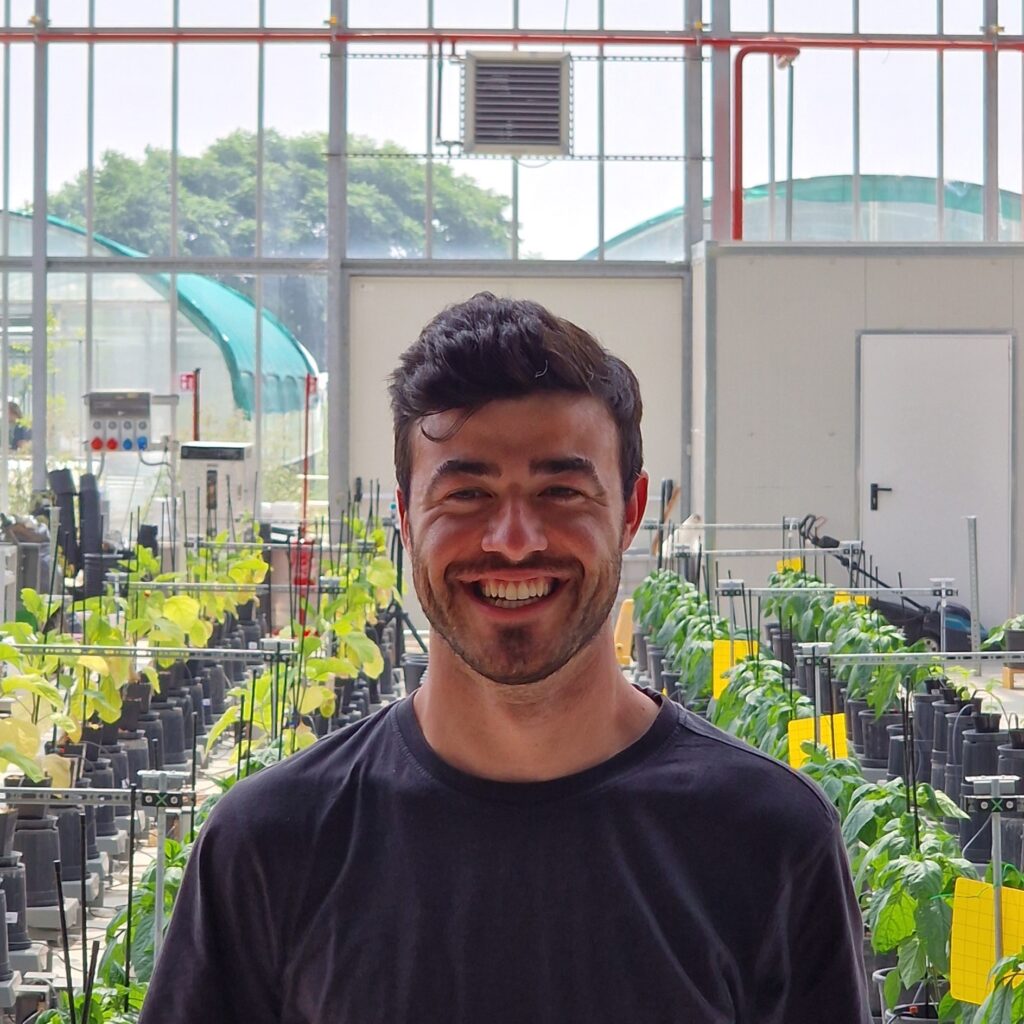
Filippo Garis
Junior Agronomist
